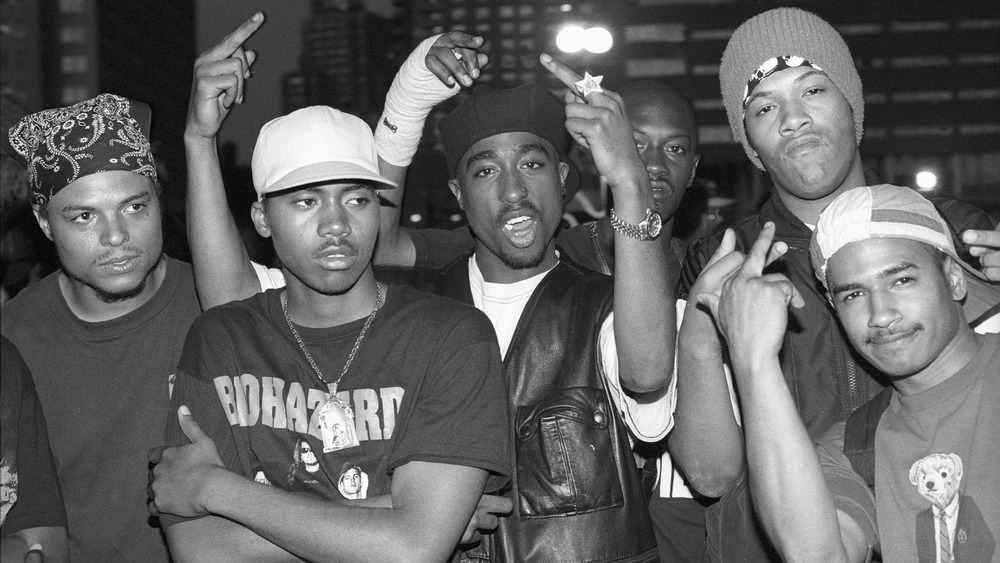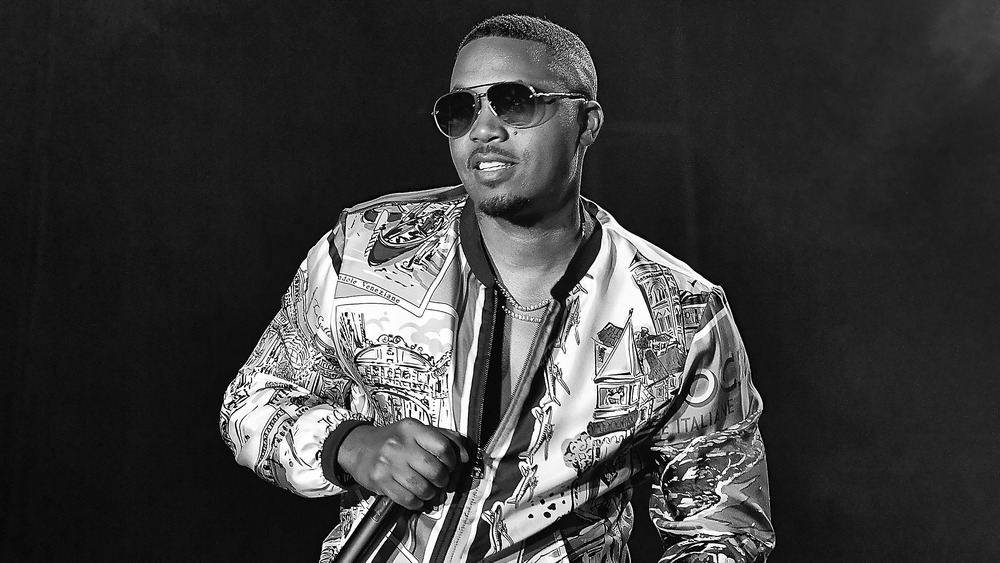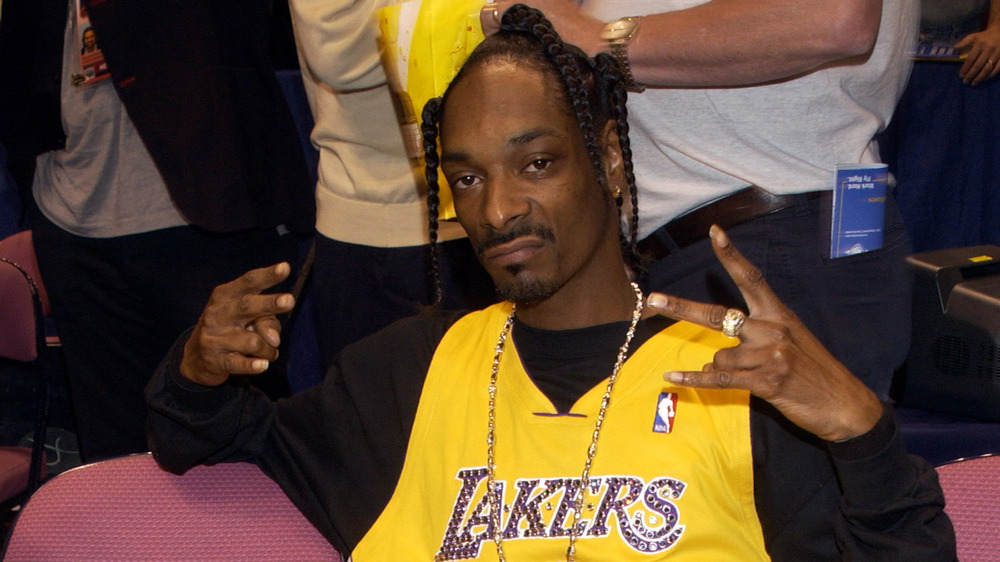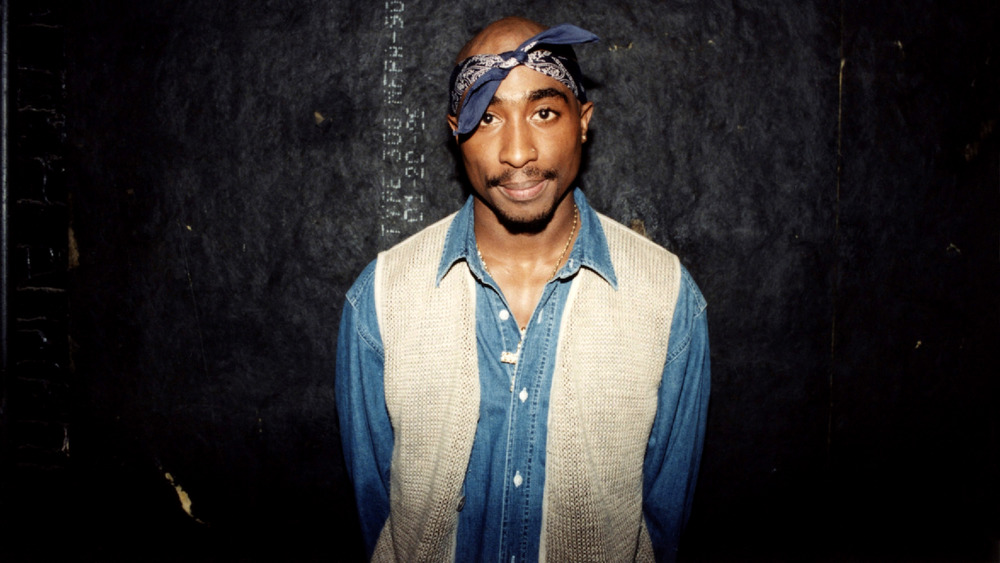54% Of People Agree That This Was The Best Hip-Hop Artist Of The 90s
Like rappers themselves, we hip-hop fanatics are obsessed with the question of which single MC deserves to be crowned the Greatest Of All Time, but the question is perhaps unanswerable. Hip-hop has been around for a long time, having first emerged in the New York block party scene in the early 1970s, as The Guardian explains. Since then, generations have given rap their own spin, evolving their techniques and the sound of the music in the process. In the battle to find the GOAT, can it really be fair to compare the early innovators to those more technically advanced who emerged decades later, thanks to the influence of those that came before them? Should Kendrick Lamar be compared to Rakim? Is Aesop Rock "greater" than Slick Rick because his rhymes are more complicated, or is Rick still the ruler because he helped lead the way?
So we decided to narrow the question down. For most of us, rap is associated with one decade more than any other: the 1990s, the years in which hip-hop grew from being niche party music to a full-blown worldwide phenomenon. We asked our YouTube followers, "who was the best hip-hop artist of the 1990s?" and gave you the choice of four rap heavyweights, two each from the East and West Coast scenes: The Notorious B.I.G., Nas, Tupac Shakur, and Snoop Dogg, with the option of commenting with a '90s great we had missed. More than 23,000 of you responded. Here's what happened.
Nas joins the others
We didn't see this one coming, but Nastradamus himself, AKA Nasir bin Olu Dara Jones, or simply, Nas, crashes out of our survey in last place. The man behind stone-cold '90s classics Illmatic, Nas's debut album from 1994, and the follow up It Was Written, from 1996, took just 4 percent of the vote, a surprise to many classic rap fans if your comments were anything to go by. Though Nas may not be as visible these days as he used to be, he dropped his well-received 13th album King's Disease in August 2020, and still gets his props, with Billboard including him on their list of the top 10 rappers of all time as recently as 2015.
Meanwhile, 8 percent of you voted "other" in our survey, double the votes for Nas. Many of you suggested some classic hip-hop crews who deserved a place on the list — Wu-Tang Clan, A Tribe Called Quest, Fugees — but most matched our survey by naming individual rappers for the gong. We were reminded by many voters that we "forgot about Dre," while others wanted Eminem on the list (though some would argue that Eminem's heyday was later, after the release of The Marshall Mathers LP in 2000).
But the name that we saw most often below the line? The MC who "scared Nas to death," according to MTV News: Big L.
Snoop beats Biggie for second
Just 4 percent of the vote splits the middle of the pack, where Snoop Dogg and The Notorious B.I.G. battle it out for supremacy. But the count is final, and it's Snoop who edges it, taking second place in our survey, while Biggie Smalls comes in third.
The careers of these two undoubtedly great rappers couldn't be more different. Though he gained a huge following in his own lifetime thanks to his classic 1994 debut Ready To Die, Biggie's career was cut tragically short in 1997 when he was murdered by an unknown assailant as part of the Coastal feuding that had engulfed hip-hop at the time. His second album, Life After Death, was released just two weeks after his murder, and cemented Biggie's legend status with the smash hit single "Hypnotize." That Biggie is often named as the GOAT from the strength of just two albums is remarkable.
Meanwhile, Snoop Dogg has been a constant presence in hop-hop for 30 years, after rising to prominence thanks to his extended involvement in Dr Dre's The Chronic in 1992, and his own LP, Doggystyle, in 1993, which went quadruple-platinum within a year of release, according to Wax Trax Records. In total, seven of Snoop's albums have gone platinum, and he continues to be a big name, having worked with everyone from Pharrell Williams to Gorillaz.
2Pac comes out on top
Tupac Shakur, whose death in a drive-by shooting just a few months before the death of Biggie Smalls sent shockwaves around the world, has come to be the most iconic figure of rap's most troubled and turbulent period.
To say that 'Pac takes the title purely on the basis of his untimely death would, however, be wrong. For hip-hop fanatics in the mid-'90s, it was obvious that the creator was a new breed of MC, whose rhymes, for the first time in the history of hip-hop, were discussed by fans as poetry. The depth of feeling and social critique on such name-making releases as 2pacalypse Now (1991) and Me Against The World (1995) made certain that 2Pac became known as far more than a gangster rapper, proving that hip-hop could also be a forum for public intellectuals. As one YouTube commenter pointed out: "while Biggie had a better flow, Tupac had far more important things to say."
The string of posthumous releases that appeared after 'Pac's death has only come to grow his legacy. And if anyone is in any doubt of the rapper's influence today, more than two decades after his death, all we need to point out is that the most celebrated hip-hop album of the previous decade, Kendrick Lamar's To Pimp A Butterfly, was originally titled Tu Pimp A Caterpillar (Tu P.A.C.) according to NME, and the album ends with an imagined interview between Kendrick and his late and much-missed hero.



